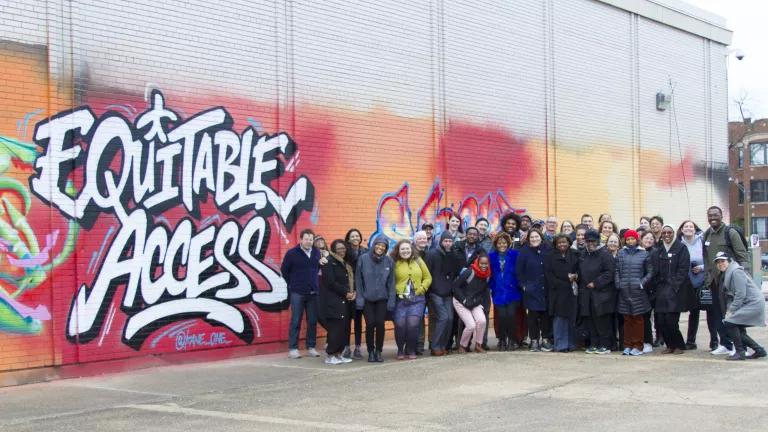霾 (smog or haze, pronounced mai) was a very rare Chinese character a few years ago; most Chinese people did not know its meaning and how to pronounce it. Now it has become an all-too-commonly heard word, thanks to frequent and serious air pollution incidents in large parts of China in recent years. Indeed, the heavy smog that has surrounded us in Beijing over the past five days has made mai the talk of the town. The general public’s awareness and knowledge of mai and PM2.5 have increased tremendously, partly because “seeing is believing”, and partly due to increasing openness by the government in releasing pollution information and allowing media coverage of pollution incidents. So, ironically, China’s pollution problem does seem to have a silver-lining.
NRDC’s China Program has worked since 2005 to promote open information and public participation in environmental decision making and protection. NRDC and a partner Chinese environmental organization, the Institute of Public and Environmental Affairs, have rated 113 city governments in China on their efforts in disclosing environmental information to the public over the past four years. Our annual evaluation has revealed progress made by cities, but also identified gaps which can inform local authorities on how they can improve their disclosure of pollution information (report in Chinese).
During the current episode of severe air pollution, Chinese mainstream media have given much more candid coverage than ever before. In addition to regularly reporting pollution measurement data on a district level and explaining the health effects of this pollution, Chinese newspapers have also introduced relevant international experiences, both bad and good. For example, the People’s Daily website gave a detailed account of the famous 1952 London Fog and Xinhua News website introduced Germany’s 100 Clean Air Action Plan and the US EPA’s AirNow.
Today, Beijing has begun to return to normal, as the thick gray haze has finally been blown away by wind. We are all grateful for the wind despite the accompanying freezing temperatures. Now, the question is: will people, the government and the media shift their attention away from the pollution and go back to business as usual? I certainly hope not. China’s environmental contamination and degradation is severe and widespread, so it needs the whole society to be engaged to cut pollution. The key steps that will help China to succeed are: honestly acknowledge the problem, make pollution and polluter information available to the public, and ensure transparency and public participation in decision making on developmental and environmental issues. These steps will, in turn, lead to more widespread support and demand for environmental action. The founder of the People’s Republic of China, Chairman Mao Zedong, led a “people’s war” some seventy years ago. China now needs another “people’s war” on polluters and emissions.



